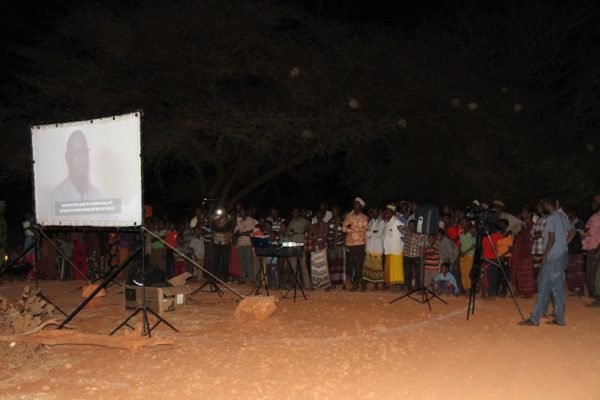The programme has used Audio-visual documentary film as a critical tool for the documentation and dissemination of its peacebuilding efforts – film has been used as a conflict early warning and prevention tool. Through film screenings, out-of-reach rural communities have been informed of cross-clan agreements and the research findings on the challenges and solutions to peace in Mandera. The films also amplify people’s voices to leaderships at the capitals.
In the case of the Banisa intervention, a film about the peace process and the community declaration was produced. Three months after the intervention, the peacebuilding team returned to Banisa and the neighbouring Sub-Counties of Mandera North and Mandera West to screen the film on the Banisa intervention. This has contributed towards the attainment of a sustainable social reconciliation process and has simultaneously bridged the information gap between rural communities and the community leaders who sign agreements and make declarations on their behalf in distant towns and cities without consultation
Similarly, the team screened films on the research findings on the challenges and solutions to peace in Mandera in 10 locations across six sub-counties in Mandera, reaching at least 3,150 people. The screenings aimed to create awareness on key conflict to help foster sustainable social reconciliation processes and increased trust building between the local population and the security agencies. This also presented a knowledge sharing opportunity where communities understood and expressed their views on the conflict drivers and mitigation alternatives.

